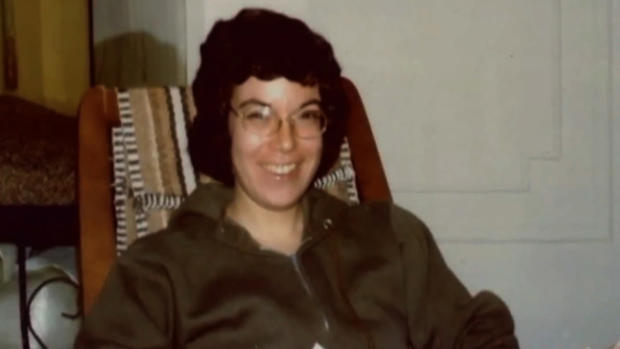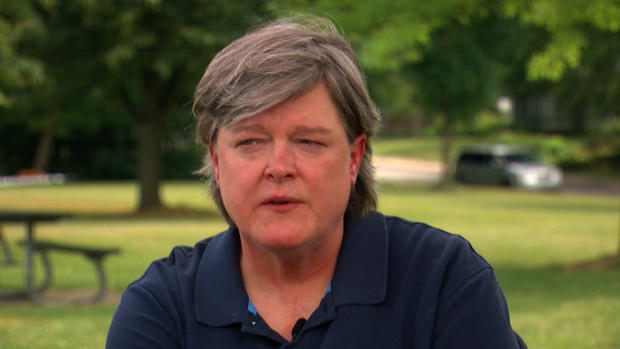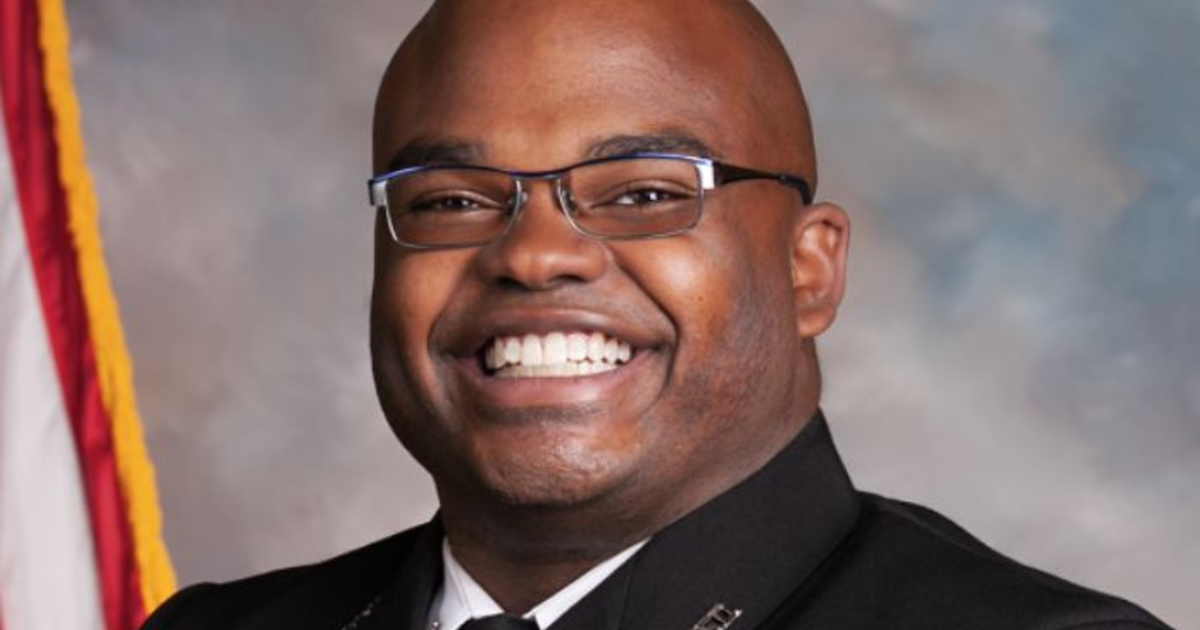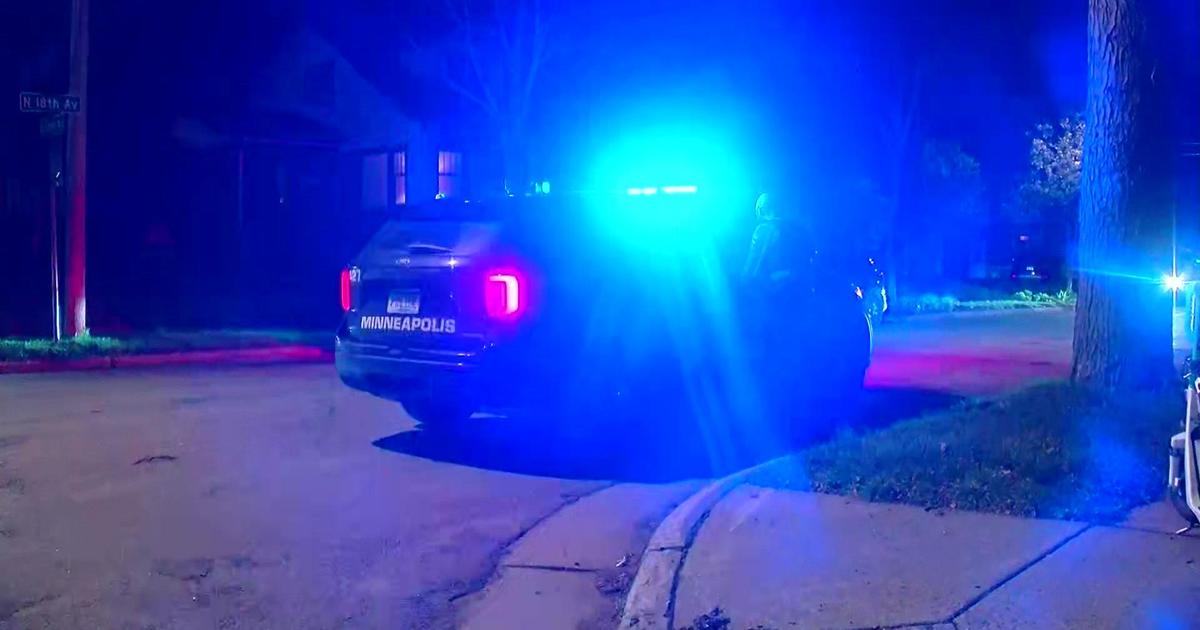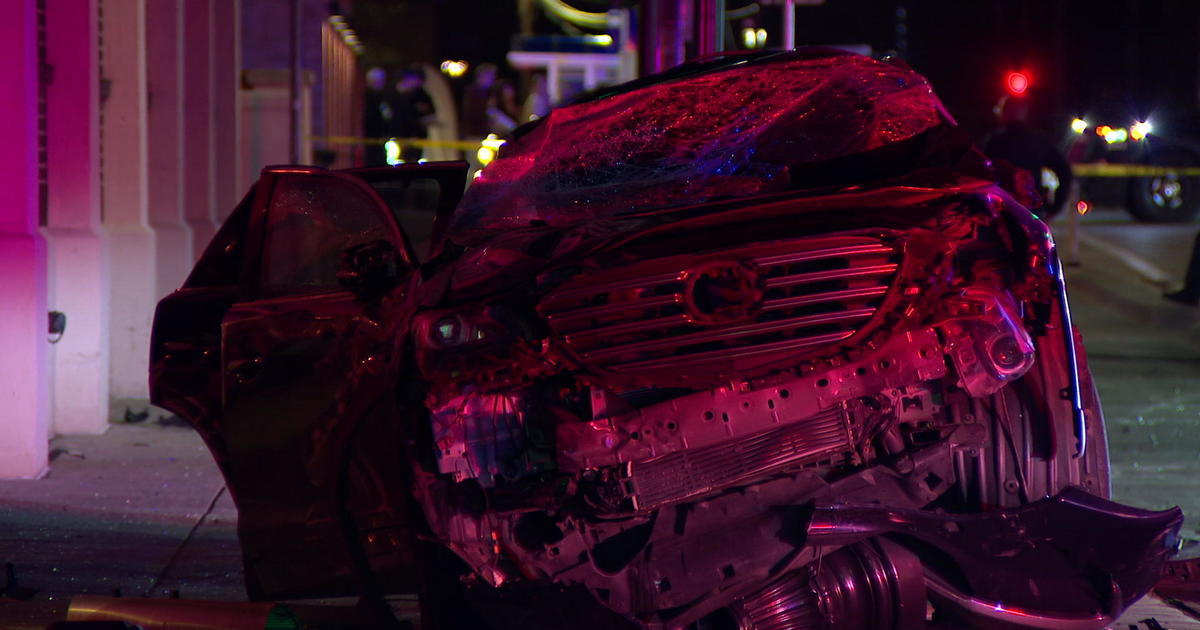'There Is Nothing That Called For Us To Kill Her': Fmr. Minneapolis Police Officer, Victim's Friend Reflect On Fatal Shooting 20 Years Later
MINNEAPOLIS (WCCO) -- Almost exactly 20 years before an Minneapolis police officer knelt on George Floyd's neck, a tragedy involving the same department led to a similar tone of outrage from the communities it affected.
On June 12, 2000, six officers from the department's Fifth Precinct responded to a call that ended with a fatal shooting at an apartment complex near West 31st Street and Hennepin Avenue. One of those officers was now-retired Sarah Saarela, who is speaking out for the first time ever.
"It's a helpless feeling to me, knowing 20 years has passed and it keeps going on," Saarela said.
She was one of two people to shoot and kill 49-year-old Barbara Schneider in her Uptown apartment during a confrontation that began as a neighbor complaining about loud music.
Veta Segal was Schneider's longtime friend.
"She was very soft-spoken. She was, you know, very passionate about social justice issues," Segal said.
Segal is one of the few people who remembers Schneider, and knew her well.
"She was just a, you know, had a lot of sweetness about her a lot of the time," Segal said. "But there were a lot of difficulties, too."
Schneider was a Twin Cities transplant, a local activist who was devout to her Jewish heritage. She struggled with bipolar disorder, something the officers did not fully understand when they responded to the call that ended her life.
One of the 911 callers noted Schneider was mentally ill and urged police contact a caretaker first. None of the six people who responded got that message.
The first two responding officers opened Schneider's door and found her holding a knife and yelling obscenities. They decided to keep the door shut until backup arrived. After officers sprayed a chemical irritant into Schneider's apartment, Schneider went into her bedroom and closed the door.
When Saarela arrived, the officers agreed to re-enter the apartment.
"I turned the radio off and took it off the window ledge, and I looked up and looked at her walls, and started looking at it," Saarela said, recalling one of the more vivid images from that night, which is historically significant as Anne Frank's birthday. "All of the writing on the walls was about the Holocaust and the Nazis and repetitive sentences."
Several miscommunications then led to a moment that changed everyone's fate: They opened Schneider's bedroom door and saw her standing there, again holding a knife.
"And that's when she raised the knife above her head and charged," Saarela said. "Two to three seconds after her bedroom door open, that's all it took. It was two to three seconds."
Ten shots total were fired -- four from Saarela.
Schneider's brother sued, and the city argued deadly force was justified. The former officer said that's how the department trained her.
The lawsuit was dismissed, and the mental health community was in shock. Dr. Bravada Garrett-Akinsanya, better known as Dr. B, is a psychologist whose clients include some MPD officers.
"It rose up a huge acknowledgement that something needed to change," Dr. B said.
She has studied the relationship between trauma and violence for more than 30 years.
"Before Barbara Schneider, many, many Black folks had been victims just like her," Dr. B said. "But because she was a white woman, it kind of turned up the volume on mental illness."
From the tragedy, the Barbara Schneider Foundation was formed, aimed to get police to prioritize de-escalation tactics over use of force. It helped start Minnesota's Crisis Intervention Team, which offers a 40-hour course and role playing to get officers to empathize with mental illness.
In the days, weeks and years that followed, Saarela battled her own mental health issues. Six months before the Schneider shooting, she helped a medical examiner clean up after a suicide. Three months before, an 8-day-old baby died in her arms. Saarela retired in 2003 at age 38.
"The human mind can only take so much exposure to that before something happens," Saarela said. "I could not do the job that I loved anymore. I just was not capable of doing it."
In a downward spiral, she got therapy, was hospitalized, and even arrested. Twenty years later, and particularly at this time, she is adamant that the repeated trauma officers endure on mental health calls prevents them from handling other calls with humanity.
"I will never expect forgiveness for what I did," Saarela said. "My actions harmed a lot of people. What I'm looking for is some concrete changes to finally f----- being made. Take police out of the mental health community. They are criminalizing and continue to criminalize mental illness."
Among the changes that have been made since the Schneider shooting is the formation and expansion of Minneapolis Police's wellness unit. It immediately checks in on and follows up with officers after traumatic incidents.
A spokesperson for the wellness unit said although openly discussing mental health struggles was once taboo within MPD, it's something department leadership values today.
